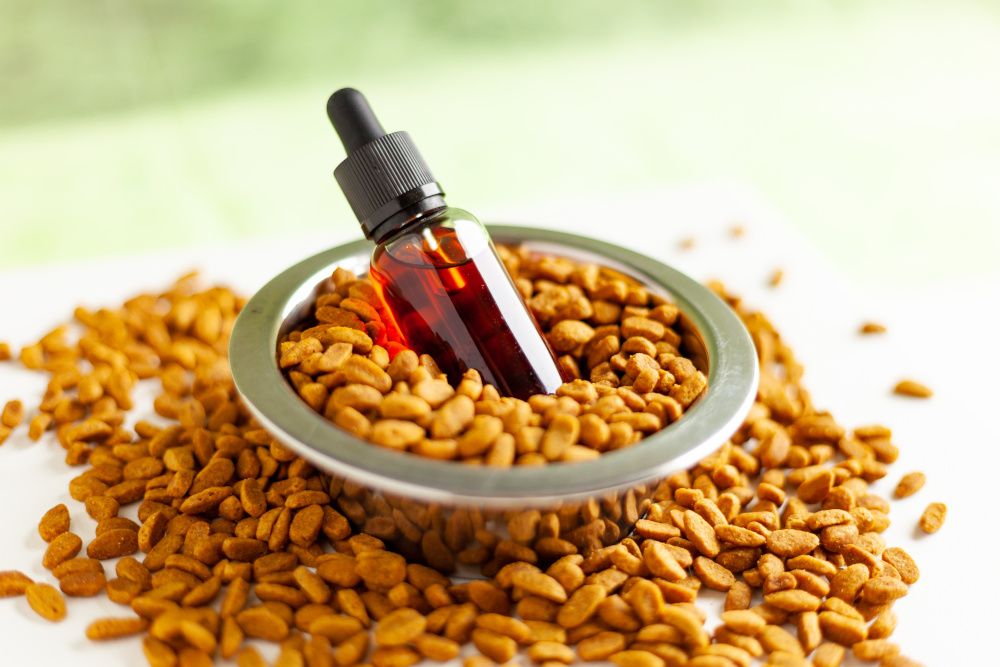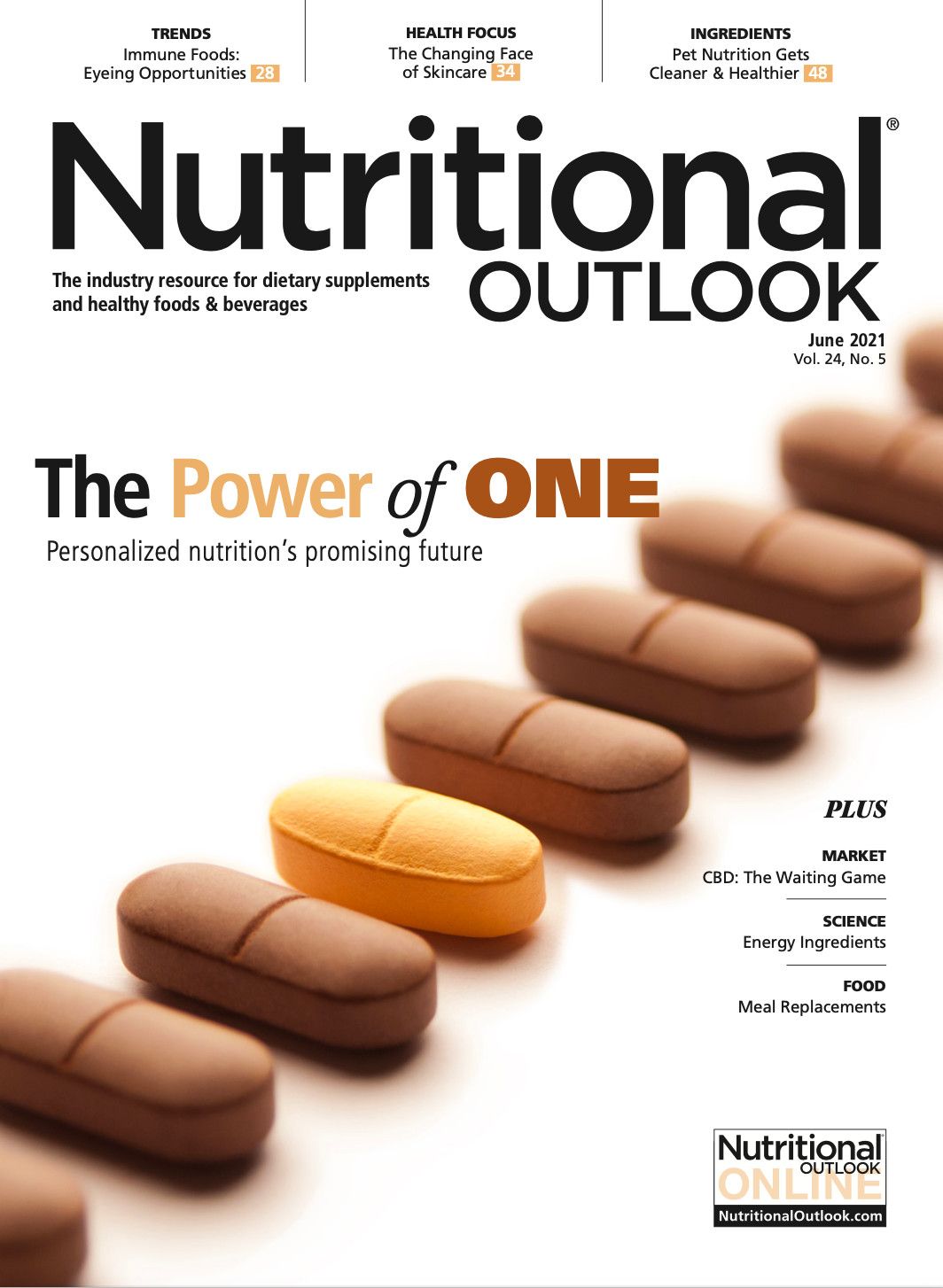Pet nutrition products are healthier, more functional, and cleaner than ever
If you’re formulating for pets, healthier, sophisticated products from whole, fresh food sources and a more holistic approach to overall health is the name of the game.
Photo © Javier Brosch - Stock.adobe.com

Pet health and nutrition products increasingly resemble human health and nutrition products. You needn’t wander far down the pet supply aisle to see this development on shelf. If you’re formulating for pets, the name of the game is using healthier, sophisticated products from whole, fresh food sources and taking a more holistic approach to overall health.
Amanda Jepson, senior director of marketing and international sales for Biova (Johnston, IA), says the reason for this is that pet owners want to treat their pets as well as they do themselves. And they start with ingredient labels.
“Consumers take their pets’ health very seriously,” Jepson says. “While there are pets who need additional support in certain areas like joint health or mood, what’s more important to consumers is what a product is free from. A lot of these trends focus on grain-free, preservative-free, raw, clean-label options.”
As consumers become more educated about dietary trends and nutritional facts in general, they’ve become more discerning shoppers for their pets. Ingredient suppliers are responding by rolling out healthier options and those clinically researched for particular functional benefits.
Replacement Ingredients
For instance, the pet food market has long relied on filler ingredients and additives that serve some kind of structural purpose but that are devoid of nutritional benefits.
Ronald Figee, commercial development manager for Biomega Group (Hordaland, Norway), says the sugar alcohol glycerine is one of these ingredients. In pet foods, glycerine acts as a sweetener, preservative, and binding agent. But while Figee acknowledges that glycerine is Generally Recognized as Safe (GRAS), he also notes that it doesn’t necessarily offer any additional health or nutritional benefits.
Companies like Biomega are stepping in with alternatives. Biomega hypothesized it could replace glycerine in pet foods with its branded hydrolyzed liquid protein product, Salmigo Protect L60. In 2020, pet food research company Passion4Feed (Sandnes, Norway) conducted an independent ingredient development study of Salmigo to determine whether the product could mimic glycerine’s plasticizing effect, Figee says.
“The results concluded that Salmigo Protect L60 delivered high digestibility and hypoallergenic benefits, enhanced the shape and texture of kibbles, significantly improved palatability for cats, and slightly improved palatability for dogs,” Figee reports. “In addition, Salmigo Protect L60 improved production throughput for manufacturers.”
Figee says reformulating pet foods is increasingly common. Pet brands are now trading out certain preservatives, binding agents, and moisture-control agents for nutritionally dense, food-grade ingredients that can achieve the same structural purpose.
Where Do We Stand on CBD for Pets?
Many owners are eyeing CBD for their pets. We asked an expert whether the science supporting the use of CBD for animals is well founded.
Duffy MacKay, ND, senior vice president of scientific and regulatory affairs for CV Sciences (San Diego, CA), says CBD can benefit dogs and cats in the same way it benefits humans due to the species’ similar endocannabinoid systems. However, he cautions, the science in this area is still evolving.
“There is a rapidly emerging body of scientific evidence on the benefits of CBD for pets,” MacKay notes. “The bulk of the pet science pertains to cats and dogs and is preclinical safety and metabolic research. There are published studies on pain, arthritis, and epilepsy.”
CV Sciences recently supplied and supported a not-yet-published pilot study at Murray State University (Murray, Kentucky), which found that hemp-derived CBD oil showed promising effects as an anti-inflammatory and pain-relief agent in arthritic dogs.
In other words? Keep your eye on this space.
Photo © Stockgurulab - Stock.adobe.com

Immune Health for Pets?
Products supporting human immune health are skyrocketing, so it’s not surprising to see immune health become a newer focus in pet products. While joint health and mobility are still the chief concerns among dog owners, immune support and digestive concerns are rapidly gaining traction, says Julie Gasper, global portfolio manager for Cargill Health Technologies (Minneapolis, MN).
Cargill’s branded EpiCor line of postbiotics has long standing in the human nutrition market. This year, Cargill expanded the EpiCor family with the launch of EpiCor Pets. It’s just one more example of ingredients that have historically been conceived of as “meant for people” now entering the pet space.
“EpiCor Pets is an advanced, natural—as defined by the Association of American Feed Control Officials—immune-support product that supports pet well-being and vitality,” Gasper says. By increasing beneficial bacteria in the gut, the ingredient helps boost both immune and digestive health.
Trust and transparency are key to pet owners, who increasingly define “high-quality pet food” and pet products as containing natural, recognizable, and proven ingredients. “Consumers are hungry for pet supplements that are backed by credible research,” Gasper adds. “That’s one of the key reasons we’ve invested in more than a dozen published trials and multiple dog studies” on the company’s ingredient.
Alternative Protein
Protein is expected to be a significant growth market for animal health in the coming years. Just like in the human nutrition market, alternative-protein ingredients are gaining traction.
Amy McCarthy, vice president of pet nutrition at ADM Animal Nutrition (Quincy, IL), says that as consumers switch to a flexitarian diet for themselves by eating more plant-based foods, they will seek out alternative proteins for their pets.
“Owners expect meals for their four-legged companions to be healthy and nutritious, which is creating a growing interest in alternative ingredients like pulses, yeasts, and ancient grains incorporated into meat-based dog and cat food,” McCarthy says.
In 2020, market researcher Mintel reported that younger pet owners are especially interested in plant-based options for their pets. According to Mintel’s report, 40% of dog food buyers aged 16 to 24 prefer plant-based dog foods, compared to only 21% of dog food buyers aged 55+.1
With such interest growing, McCarthy says, “ADM is also exploring other sources of protein for both people and pets, including mycoproteins from mushrooms and fungi, insect proteins, and fermentation-based synthetic and cell-based proteins.”
Taking Care of Aging Pets
Consumers shopping for pet health products are often seeking support for aging animals. As mentioned, joint health remains one of the most popular categories in the pet supplements market.
Tim Hammond, vice president of sales and marketing for Bergstrom Nutrition (Vancouver, WA), says his company has seen a sharp rise in requests for its branded methylsulfonylmethane (MSM) ingredient, OptiMSM, for pets.
“Premium brands and concerned consumers are now more than ever prioritizing the safety and origin of ingredients they provide to animal companions,” Hammond says. “MSM benefits both active and aging pets by supporting joint health, reducing soreness, and improving range of motion.”
Skeletomuscular function is also a key determinant of pet heath, particularly as pets age. Ingredients that can help pets preserve muscle health are always of interest.
Recent research indicates that a purified seaweed extract could be a prime solution. A 2021 animal study2 sponsored by Marinova (Tasmania, Australia) examined the effects of Marinova’s fucoidan, a polysaccharide extracted from brown seaweed, on skeletal muscle mass in mice. The mice were randomly assigned to either 1) a control condition without exercise (n=8), 2) a control condition with exercise (n=10), 3) a fucoidan condition without exercise (n=10), or 4) a fucoidan condition with exercise (n=10). The mice in both fucoidan conditions received 400 mg/kg/day of fucoidan for four weeks, while the mice in the control conditions received a water placebo. The researchers used an exhaustion fatigue test on a motorized treadmill, gradually increasing speed. Other tests included a grip strength test and an in situ muscle function test. After four weeks, fucoidan administration was found to increase muscle size and strength in both the exercise and non-exercise conditions relative to placebo.
Krutika Sen, business affairs manager for Marinova, says this study suggests fucoidan influences skeletal muscle physiology. Marinova is currently working on further research to examine the effects of fucoidan on muscle maintenance and exercise performance.
“Marinova has identified three animal health markets for fucoidan,” Sen says. “The first is multifunctional ingredients for aging companion animals. Fucoidan fits well in this category. Marinova is also seeing increased uptake of fucoidan to target arthritis and gut health in companion animals.”
Picky Parents
Discerning pet parents are driving the development of higher-quality, healthy, well-researched products. Nutritionally devoid fillers are rapidly falling out of popularity as consumers look for transparency and functionality. Organic, non-GMO, and clean-label products continue to trend. And with all the innovation happening in functional and alternative ingredients, don’t forget about the importance of taste/palatability.
Owners view pets as family members, says Kristen Marshall, digital marketing manager for Verdure Sciences (Noblesville, IN), and will continue purchasing accordingly. “Pet health products are targeting applications that mimic human counterparts. [These applications include] joint health and movement, gut and digestive health, stress, mood, immune health, and oral health, to name a few.” The pet health market often demands flexibility with respect to ingredient tolerability, solubility, and dosage, she adds, so formulators should be prepared to pivot and adapt as necessary.
References
- Mintel report. “Four-Legged Flexitarians: Over a Third of UK Dog Food Buyers Believe It’s Good for Pets to Regularly Have Plant-Based Meals.” Published online February 7, 2020.
- McBean SE et al. “Oral fucoidan improves muscle size and strength in mice.” Physiological Reports, vol. 9, no. 3 (February 2021): e14730

Prinova acquires Aplinova to further increase its footprint in Latin America
April 7th 2025Prinova has recently announced the acquisition of Brazilian ingredients distributor Aplinova, which is a provider of specialty ingredients for a range of market segments that include food, beverage, supplements, and personal care.




















